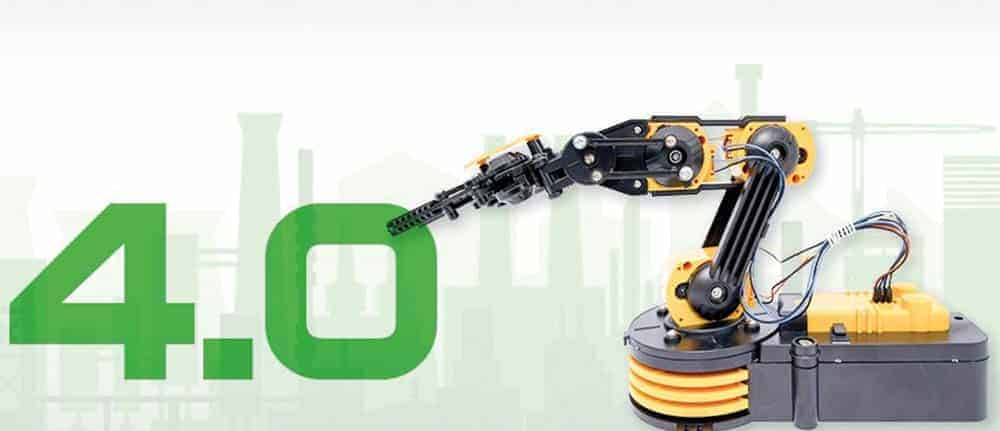Industry 4.0 needs new e-commerce models


The S/4 Hana architecture with its extremely short access times enables real-time communication between machines and processes. This makes it possible to design completely new factory architectures.
Data flows in the age of Industry 4.0 are becoming more complex in all areas of a company. Because digitization and automation are advancing so rapidly, companies are faced with the challenge of competently processing all of the newly emerging data and information.
The task is to control the data streams in real time and to use them along the value chain. Previously separate work processes are increasingly merging in the modern retail and industrial environment: production machinery, maintenance management and orders are merging with sales.
Within the framework of Industry 4.0, information is available to the customer more quickly and across the entire value chain, enabling him to manage customer requirements in line with needs.
The increase in platforms and potential sales channels results in a higher level of information for prospective customers. They are much more likely to encounter brands and products along the customer journey. In sales, therefore, the requirements for a modern and, above all, effective infrastructure are increasing.
New solutions and innovative ERP systems for shipping are in demand, combined with integrative solutions such as Hybris Commerce or Hybris C4C. Hybris as an omni-channel solution is the opportunity for this increasingly important form of distribution and at the same time supports cross-channel strategy development and conceptualization.
Against the backdrop of Industrie 4.0, this enables companies to create a consistent brand presence across all sales channels.
Omni-channel commerce enables companies to make their real-world business processes less complex. In this way, they expand their business and increase sales efficiency.
Sales departments of manufacturing companies in particular, where Industry 4.0 scenarios are naturally most prevalent, can use it to provide their corporate customers with shopping experiences similar to those they are used to in the B2C sector.
Many people still associate the magic word omni-channel with the consumer sector. The scenario is familiar: you browse through the print catalog, then get advice in the brick-and-mortar store, and then order in the store via the online store because the right size is not in stock at the moment. The result is a seamless and coordinated shopping experience across all channels, stationary and on the smartphone, online and offline.
This interlinking of sales channels also works for manufacturing companies with a tool like Hybris. In the e-commerce store as the front end, the customer accesses the spare parts catalog, zooms in on it, and assembles his machine parts using the integrated product configurator. He searches independently in the parts catalog or the drawing, checks the availability and price of a part, places the selected spare parts in the shopping cart in the same step, and the order is completed.
The store forwards orders to SAP immediately and without manual intervention - just as if the order had been entered by the office staff. Connected to an electronic archiving system for digitally signed delivery bills, invoices and other customer documents, customers can use the platform to view their collected receipts from the past.
There are many store systems - also for manufacturing - which in the past were mainly developed by advertising agencies. Many lack the ability to communicate with SAP, access data for pricing, or resolve bills of materials.
These connections have to be established via complex special integrations. Against the backdrop of Industry 4.0, it is therefore advisable for SAP users to fall back on the e-commerce solutions from Walldorf here.







